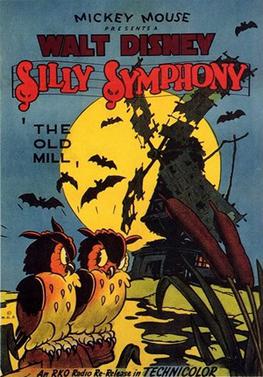The Golden Age of American Animation
Disney
Disney had their beginnings with Steamboat Willie (1928), a sound-synchronized animated feature featuring Mickey Mouse.The Silly Symphonies, beginning with The Skeleton Dance (1929), were a series of light-hearted musical animated shorts. The most successful 'Silly was The Three Little Pigs (1933), which won an Oscar for best short film. Another Disney character, Donald Duck, first appeared in the short The Wise Little Hen (1934).

Donald Duck in the early days
Disney also experimented with realism in animation in The Old Mill (1936), which used realistic animals and natural sound effects.

Fleisher Studios
Max Fleisher inventing the rotoscoping technique, where animated characters were drawn frame-by-frame over filmed action, creating life-like movement.Fleisher Studios also made Popeye and Betty Boop


For their live-action films, one of the most notable being Gulliver's Travels (1939), which used rotoscoping for the character Gulliver, which garnered criticism as the rotoscoped human characters clashed with the cartoons.
Fleisher also created the Superman (1941) animated cartoon, which gave Superman the power of flight (could only leap tall buildings before), the style of this cartoon influenced the stylistic direction of Batman: The Animated Series (1992-1995) and Superman: The Animated Series (1996-2000)
Warner Bros.
Tex Avery and his team reinvented animation by using an extreme and exaggerated style that incorporated elements of surrealism.Daffy Duck
Created by Tex Avery for the short film Porky's Duck Hunt (1937), and subsequently given a starring role in Daffy Duck and the Egghead (1938). Avery preferred the Egghead character (who later became Elmer Fudd) and dropped Daffy, which resulted in Daffys design changing over the years as he was passed on to different animators
Bugs Bunny
First appeared in Porky's Hare Hunt (1938), and was named after Ben "Bugs" Hardaway. Like Daffy, Bugs' appearance changed over timeThe evolution of Bugs Bunny over time
No comments:
Post a Comment